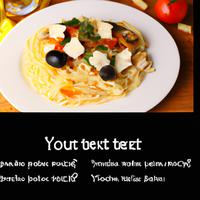
1 serving (140 grams) contains 221 calories, 8.1 grams of protein, 1.3 grams of fat, and 43.2 grams of carbohydrates.

Log this food in SnapCalorie

Nutrition Information
Calories |
368.3 | ||
|---|---|---|---|
% Daily Value* |
|||
| Total Fat | 2.2 g | 2% | |
| Saturated Fat | 0.3 g | 1% | |
| Polyunsaturated Fat | 0 g | ||
| Cholesterol | 0 mg | 0% | |
| Sodium | 1.7 mg | 0% | |
| Total Carbohydrates | 72.0 g | 26% | |
| Dietary Fiber | 4.2 g | 15% | |
| Sugars | 1.3 g | ||
| protein | 13.5 g | 27% | |
| Vitamin D | 0 mcg | 0% | |
| Calcium | 16.7 mg | 1% | |
| Iron | 2.2 mg | 12% | |
| Potassium | 103.3 mg | 2% | |
* Percent Daily Values are based on a 2,000 calorie diet. Your daily values may be higher or lower depending on your calorie needs.
Food Attributes
Source of Calories
About Pasta cooked
Pasta, a staple of Italian cuisine, is made primarily from durum wheat and water, often enriched with vitamins like folic acid for added nutritional value. Once cooked, it becomes a versatile base for countless dishes, pairing well with vegetables, proteins, and sauces. Pasta is a good source of complex carbohydrates, offering sustained energy, and contains little fat or cholesterol. It also provides some essential nutrients like iron and B vitamins. Whole-grain pasta is a healthier option, offering higher fiber content to support digestion and heart health. However, traditional pasta is calorie-dense, and excessive portions or heavy cream-based sauces can contribute to weight gain and elevated cholesterol levels. Overall, when paired with balanced ingredients, pasta can be a satisfying and nutritious meal option fitting into a healthy diet.



